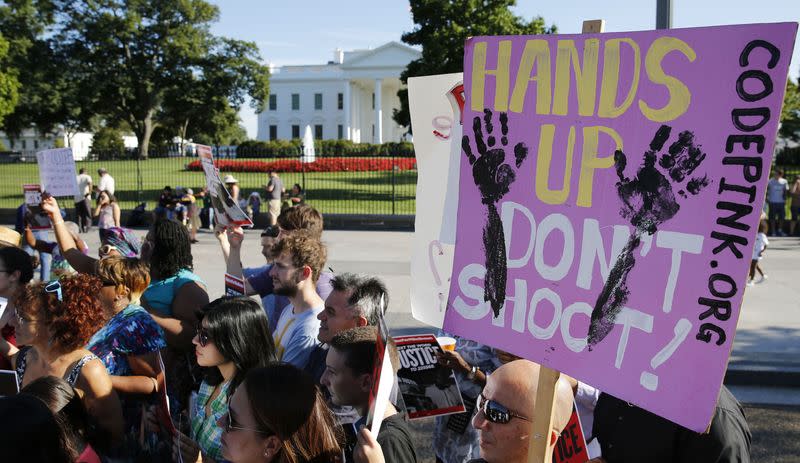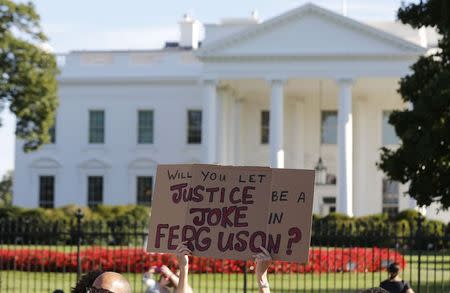Ferguson council to meet for first time since Michael Brown shooting
By Carey Gillam FERGUSON Mo. (Reuters) - Embattled city leaders in Ferguson, Missouri, on Tuesday were preparing to hold their first public meeting since last month's fatal shooting of an unarmed black teenager by a white police officer ignited weeks of unrest in the St. Louis suburb. Tension remains high in the mostly black community of 21,000 a month to the day after the Aug. 9 shooting. Protesters are demanding the arrest of the officer who shot and killed 18-year-old Michael Brown, as well as the ouster of both Mayor James Knowles III and Ferguson Police Chief Tom Jackson. They also are seeking a series of changes to the city's policing policies and the municipal court system. The Ferguson City Council, made up of the mayor and six other members, canceled a meeting scheduled for late August and arranged to hold this council meeting at an area church to accommodate what is expected to be a large crowd. In a precursor to the meeting, a public relations firm representing the city council on Monday night issued a press release laying out a series of new programs the council said should help reduce community concerns, including the formation of a citizens review board to help improve law enforcement operations and actions. The council also said it was introducing an ordinance to reduce fines and other punishments leveled in municipal court that many have alleged unfairly target blacks. But on Tuesday, many in the community said the changes proposed lack crucial details and do not go far enough. "It's been 30 days since Mike Brown was killed," said Brendan Roediger, a law professor at Saint Louis University who has been part of a group meeting with the Ferguson city attorney's office about changes to the local court system. "This is progress. But the details are still to be worked out. There are still real questions." Markese Mull, 39, who said he knew Brown personally and was planning to participate in a protest for Wednesday, called the council efforts "fake." "If we let this situation die down, they win," said Mull, who wants to see an end to what he calls routine police harassment of blacks. "Next week somewhere another black man will be gunned down. We have to keep this fight alive." City and county officials have been under fire since the shooting of Brown by police officer Darren Wilson spiraled into a series of nightly protests and sometimes violent rioting in Ferguson city streets. Missouri Governor Jay Nixon declared a state of emergency for the city, and sent in National Guard troops to try to quell the unrest. More peaceful protests continued this week, with demonstrators showing up daily in a parking lot across the street from the police department. CALLS FOR OFFICER'S ARREST Witnesses have reported that Brown had his hands in the air when Wilson shot him shortly after noon as he and a friend walked down a residential street. An autopsy showed Brown was shot at least six times, including twice in the head. Wilson has been placed on paid administrative leave and has gone into hiding, as the county prosecutor presents evidence to a grand jury to determine if any charges are filed. At a news conference Tuesday, Brown's parents, the NAACP and other groups said again that they want Wilson arrested immediately. There is no reason to wait for a grand jury to review the evidence, they said. "Darren Wilson should be arrested," said Anthony Gray, a lawyer for Brown's family. "He should be booked, he should be fingerprinted, he should be photographed." The U.S. Department of Justice is investigating the shooting and also looking into accusations of racial profiling by Ferguson police. Protests have continued both in Ferguson and across the country over what demonstrators say is a long history of police intimidation and abuse of blacks in the St. Louis area and many other U.S. cities. A group called Justice for Michael Brown Leadership Coalition said it was planning to block a major highway that runs through St. Louis on Wednesday. (Reporting by Carey Gillam; additional reporting by Jason McLure; Writing by Fiona Ortiz and Carey Gillam; Editing by Peter Cooney, Bill Trott and Cynthia Osterman)



